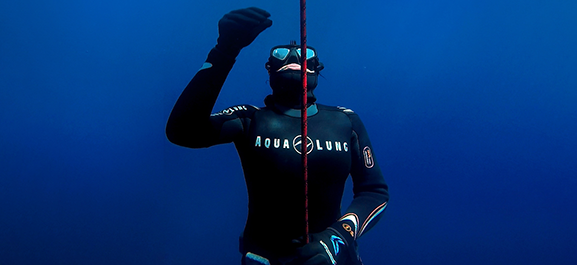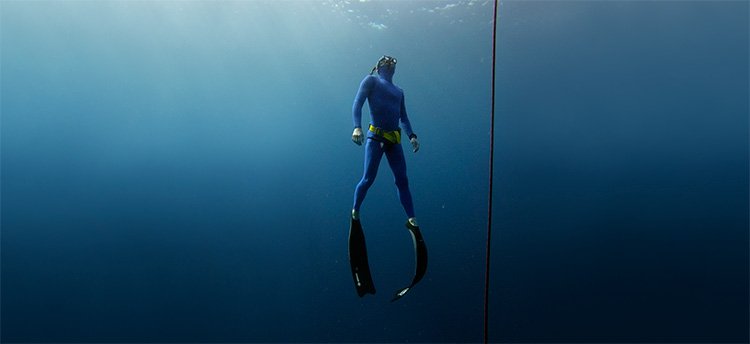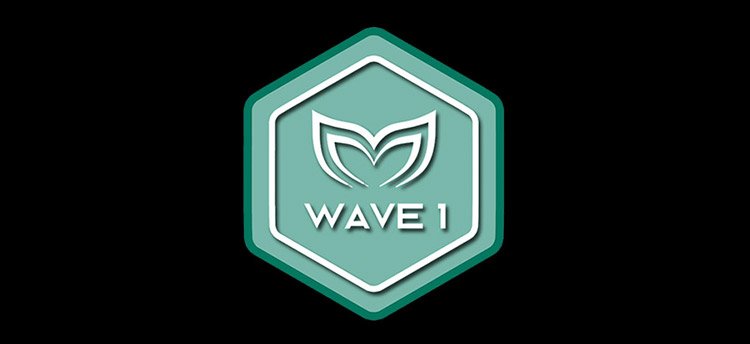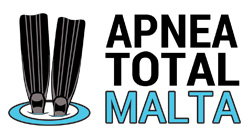Welcome to Apnea Total Malta – Your Gateway to Freediving!
Are you curious about breath-hold diving also known as freediving but unsure where to start? Wondering what freediving really is, if it’s for you, or which course to choose? Take a deep breath and dive into the world of freediving with Apnea Total Malta – your trusted freediving school in Malta and Gozo.
What is Freediving? Discover the Magic of Breath-Hold Diving
Freediving is the art of diving underwater on a single breath, without scuba gear. Thanks to the incredible Mammalian Dive Reflex (MDR), your body instinctively adapts when your face touches the water, allowing you to explore the underwater world safely and naturally. The MDR provokes a series of physiological responses that enables our body to adapt naturally to an aquatic environment.
Freediving isn’t new – it’s been practiced for over 7,000 years (Ertebølle culture)! Today, it’s enjoyed worldwide as a blend of mindfulness, athleticism, and exploration. Freediving can be a thrilling recreational activity, a competitive sport with exciting disciplines like Static Apnea (breathholding at the surface), Free Immersion (pulling the line), and Constant Weight (kicking down the line), or used for Spearfishing.
Free diving is often compared to snorkeling and scuba diving, though these 3 activities are very different. Snorkelers float at the surface with their face in the water while scuba divers use a breathing apparatus to stay underwater. No equipment is required, per se, to freedive. However, free divers can use a low volume mask, a snorkel, long fins or a monofin, a noseclip, a wetsuit, weights and a weight belt. To freedive along the line, a freediver also needs a freediving buoy. New freedivers don't have to buy gear. Freediving courses usually include the equipment. Otherwise, you can rent it at the dive center.
Freediving is more than a sport—it’s a path to inner calm, disciplined practice, and unforgettable underwater adventures. Whether you're chasing breath-hold milestones or dreaming of meditative dives, we’ve got the course for you.
Why Take a Freediving Course? Learn to Dive Safely and Effectively
Since freediving is the most natural way to dive, you might be wondering why you should take a freediving course. The answer is simple: only a qualified freediving instructor can teach you to free dive efficiently (breathing techniques, equalizations methods, stretching and relaxation exercises, etc.) and safely (buddy system, rescue skills, risk awareness, safety procedures, etc)
You will then need to determine which freediving course is the most appropriate for you. As a beginner freediver, you will usually have a choice between a one-day introductory course and a certification course, the length of which depends on the freediving educational system. Each freediving agency has its own education system of freediving program. Although it sounds complicated, rest assured that most of the freediving agencies cover the similar skills in their respective courses, which is why you can easily crossover from one freediving federation to another.
We offer the following 3 courses to new freedivers eager to start their underwater adventure, one non-certificate course and two certification courses from the freediving education systems we chose to represent.
Choose Your Perfect Freediving Course in Malta and Gozo
We offer three excellent starting points for new freedivers:

Apnea Total
Discover Course
This 1 day course is an introduction to free diving during which you will learn how to freedive, meaning how to duck dive, kick, equalize and hold your breath. First you will learn the theory behind freediving during a knowledge development session and then, you will practice your skills during the water session.
This course is not a certification course. To get certified, please join our Freediver Course

Apnea Total
Freediver Course
First certifying level, the Freediver Course covers the fundamentals needed to freedive safely down to 20m: breathing techniques for longer breath holds, equalization methods to adapt to the pressure, efficient finning to move easily below the surface but also safety procedures and buddy team work.
The Freediver Course offers a certification recognized worldwide.

Molchanovs
Wave 1
The first step in the freediving world by Molchanovs, Wave 1 is a comprehensive introductory course: effects of freediving on the body, breathing & equalization techniques, mental exercises for optimized dives, buoyancy, introduction to several freediving disciplines, and of course, safety and rescue procedures.
Wave 1 opens the door to Base Training, online training, and a supportive community
Why Choose Apnea Total Malta? Expert Instruction with Passion
Your freediving experience depends on your instructor. Our head instructor, Arturo, is a Master Freediver and Instructor Trainer with over 1,300 certified students. Trained intensively in both Apnea Total and Molchanovs systems, Arturo blends passion, patience, and personalized coaching to help you reach your potential safely.
With certifications from Apnea Total or Molchanovs, you're free to dive anywhere in the world.
We believe in quality education, safety, and fostering a supportive community. Don’t just take our word for it – check out glowing reviews from our freedivers on TripAdvisor, Google Maps and facebook page .
What our students say about their experience!

Ready to Dive In? Start your Freediving Adventure Today!
Join Apnea Total Malta and explore the breathtaking underwater world of Malta and Gozo with confidence and skill. Whether you want to learn to freedive, freedive for fun, or spearfish, our courses and activities provide the perfect foundation.
Contact us now to book your course or learn more about freediving with Apnea Total Malta – your trusted freediving school in the Mediterranean.



